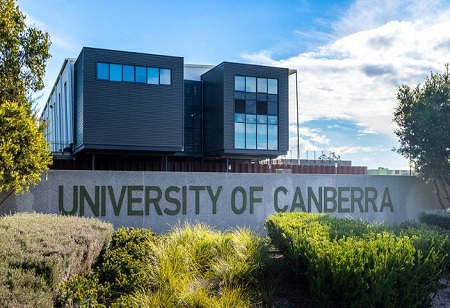Canberra has evolved from a "government town" to a lively metropolis with more job openings than jobless people, allowing overseas students to pursue a variety of professional pathways, according to ACT Chief Minister Andrew Barr. Mr Barr said at an Australian China Business Council (ACBC) ACT event that job opportunities were being created by strong growth in the information technology sector, professional services, creative industries, and advanced technologies such as quantum computing, cyber security, space technology, and renewable energy. "During the last five years, the workforce has risen by more than 15%, with three out of every four new positions coming from outside the government sector," he stated. "Canberra is a varied, globally linked city with opportunity." The event at Hotel Realm brought together academics, government leaders, companies, and students from the Canberra region to exchange ideas and highlight employment options such as internships, casual jobs, and post-graduation professions.
The federal government has increased post-study work privileges for certain bachelor's degrees from two to four years, select master's degrees from three to five years, and all doctorate degrees from four to six years. Mr Barr stated, "Canberra's higher education institutions offer more than 160 programmes that are qualified for prolonged post-study work privileges." "Since Canberra is the capital city, graduates can seek for an additional year of post-study work privileges by studying, living, and working here."
Chris Gartner, pro vice-chancellor of future students at the University of Canberra, explained how international students could effectively prepare for the workforce while still on campus. He emphasised that the employability journey began as soon as students stepped through the door. Mr Gartner said students should ask themselves the following questions. “What do I know about myself? “What do I know about the industry that I want to work for? “How do I get to meet the market employers and demonstrate to them that I understand where my skills fit? “Progressively answering and addressing those three questions as you go through a couple of years of study is really what we focus on taking students through from UC.”
In addressing Canberra's significant skill shortages, Catherine Ng, general manager of CIT Solutions, emphasized the importance of vocational education (VET) as a cost-effective and alternative educational option for students, smoothly linking to universities. "We need more trained cooks, nurses, and accountants." The Canberra Institute of Technology (CIT), a government-owned VET program, provides graduates with hands-on experience through industrial internships. "This helps them stand out to employers and overcome the challenges experienced by'sea turtles,' or Chinese students returning from abroad," she explained. She singled up Agnes, a CIT graduate, as an example of achievement. "With CIT's cooking program and her past bachelor studies in Nutrition and Dietetics, Agnes realized her ambition of becoming a 'Dietitian in the Kitchen.
"Now that she has graduated, she runs the restaurant where she received her training, fulfilling her goal on a skilled work visa in Canberra." "Agnes' goals include earning a Doctorate in Nutrition and Dietetics," she explained. Kai Zhang, a former foreign student and current owner of Maxwell & Co. in Canberra, said the city not only prepared students for the workforce, but also had a revolutionary influence that extended beyond professional realms. Kai stated that the pleasant and accessible demeanor of Canberrans allowed pupils to easily mingle with accomplished members of society. This conversation gave excellent insight into possible career possibilities. "Canberra is a location where you'll be treated as a person rather than a number," he remarked.

